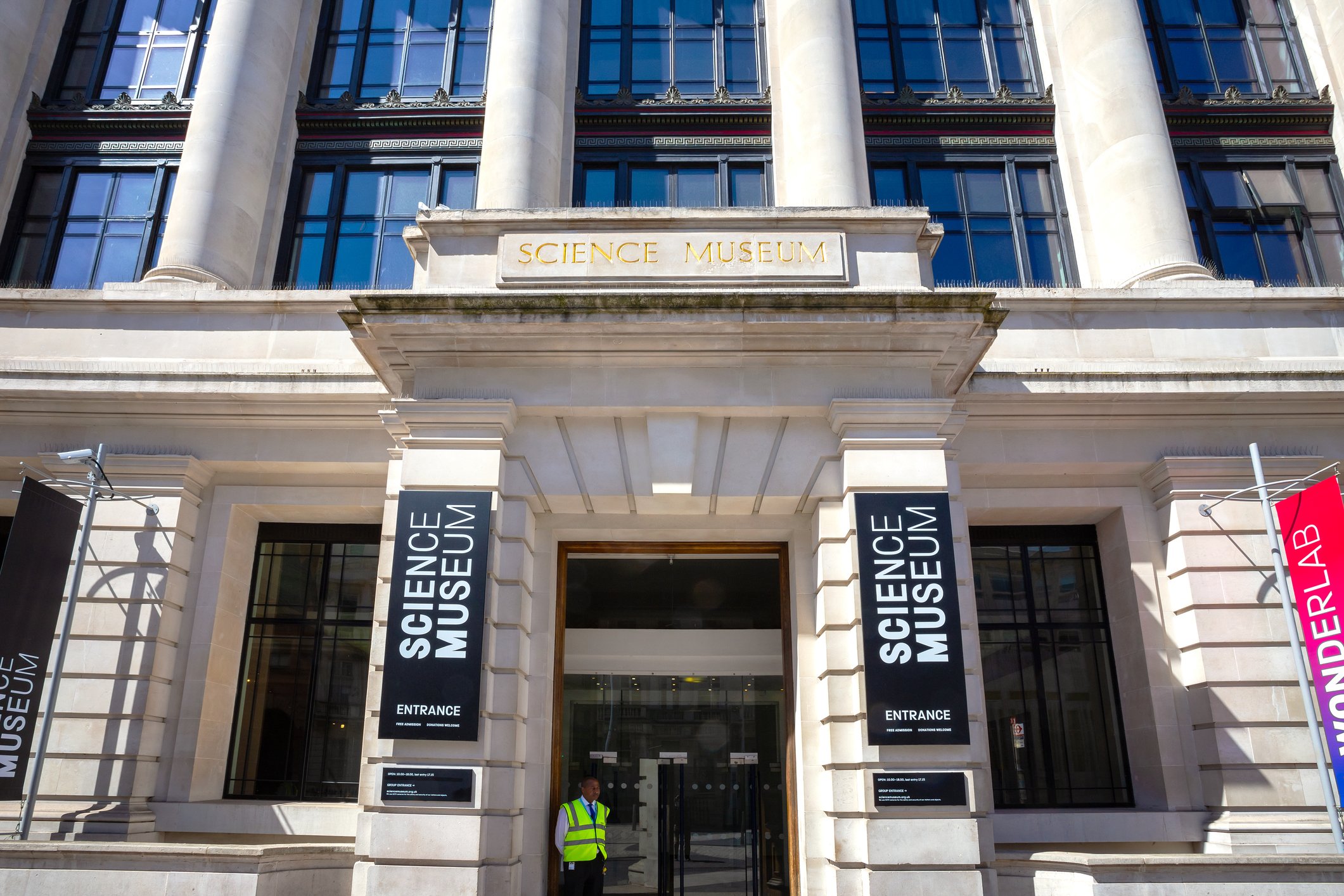
The union representing the guards claimed they were among the lowest paid in the museums the museums but that the attractions could not function without them.
Photo: coward_lion via iStock
Security staff at London museums in strike ballot over pay
Security guards working at the Science Museum and the Natural History Museum are being balloted on strike action for a pay rise to £16 an hour.
Security guards working at two popular London cultural attractions are being balloted on strike action over wages and sick pay.
Over 70 security staff at the Science Museum and the Natural History Museum are participating in the ballot, which opened on 6 September. They are not employed directly by the organisations but work for outsourcing contractor Wilson James.
The action has been called by the United Voices of the World Union (UVW) which represents low-paid, precarious, migrant and marginalised workers. UVW says around half of affected members are not British nationals and they claim that both Wilson James and the museums have refused to negotiate with the security guards or the union.
READ MORE:
Guards currently earn £11.95 per hour, higher than the government’s national minimum wage of £11.44 but below both the hourly National Real Living Wage (£12) and the London Real Living Wage (£13.15), which was set nearly a year ago in October 2023.
UVW says the guards' last pay rise was 18 months ago, amounting to 4.5%, but notes this was below inflation at the time, which peaked in October 2022 at 11.1%.
UVW General Secretary Petros Elia said the guards "shouldn’t be among the lowest paid workers in the museum".
Although UVW understands there are plans to raise pay rates to £13.15 per hour, it says its members have described the gesture as “too little, too late” and are instead requesting £16 an hour.
They are also asking for annual and compassionate leave above statutory minimum levels, as well as full sick pay from day one for any illness absence, which is currently only offered after day four.
"The security guards protect millions of visitors and priceless exhibits but are outsourced to contractor Wilson James," said UVW.
"[The guards' duties] include operating control rooms, perimeter security and internal patrols, emergency response and first aid, management of electronic security systems, bag search and door security… the museums could not function without them and the services they provide."
'Second-class employees'
Geoffrey Davis, a security supervisor at the Natural History Museum who has worked with Wilson James for 23 years, said he'd found it hard to make ends meet as the cost of food utilities has risen in recent years.
"The museums treat us as second-class employees when they give their directly employed staff pay raises and bonuses of £500," he said. "We think the museums need to take safety more seriously by treating us the same as their in-house staff, including paying a decent wage and providing sick pay from day one.”
Bayo Owolabi, a security guard at the Science Museum, added: “It’s quite disrespectful and demoralising that security guards are the lowest-paid staff in the Science Museum. The other museum staff have received pay rises in line with inflation.
"It’s stressful and a struggle having to do so much overtime and working unsociable hours. It puts a strain on our family lives."
Science Museum Group confirmed that in April it brought pay rates across its sites in line with Real Living Wage and London Living Wage. It also noted that in its most recent pay settlement, it undertook a differentiated approach to pay raises, with better-paid colleagues receiving a smaller increase.
If the security guards vote to strike, industrial action is expected to take place between 21 October and 3 April 2025.
Both museums declined to comment on the potential impact of a walkout, citing talks between Wilson James trade union representatives.
A Wilson James spokesperson said: “We highly value our employees and are committed to fair and transparent negotiations. We are actively engaged in conversations with our colleagues and trade union representatives at the Science Museum and Natural History Museum and remain dedicated to seeking an effective pay resolution.”
Join the Discussion
You must be logged in to post a comment.